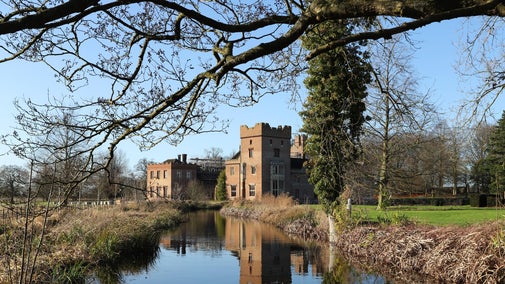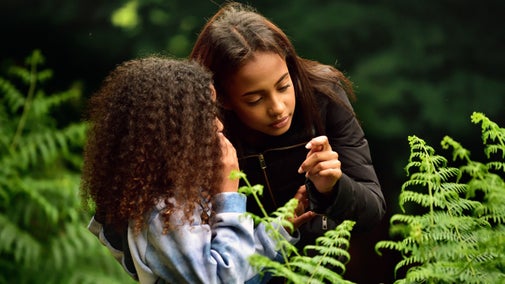
Donate
Everyone needs nature, now more than ever. Donate today and you could help people and nature to thrive at the places we care for.

Our collections team work hard all year around to look after the special collections of A la Ronde. Find out more about the work they do.
The main work of the Collections team is preventative conservation: caring for and monitoring the collection and the house so that any issues can be picked up before they become a problem. They protect objects from damage with ongoing, everyday housekeeping.
It’s not just a question of keeping things clean and tidy, although this helps, but removing the dust and taking time to examine the objects means that our objects will last longer in good condition, and if they are well presented, it makes for a really interesting visit.
It is really important for people to come and see the house and its fabulous collections and hear the stories about its owners and occupiers, but visitors can cause accidental damage. They can bring in a lot of dust, they need light to see the objects and can be tempted to touch unusual materials. The collections team have to try and balance the needs of visitors with providing protection for the houses and their contents.
By keeping the collections clean and dust free, we can help to prevent damage from insects – most insect pests like dark, damp, dirty areas to live and breed, so by careful housekeeping and regular monitoring, this can be controlled.
You might see insect blunder traps around the house, that look like flat black plastic boxes. These are sticky traps by which we monitor and detect insect movement. These are regularly gathered up by the team and anything found inside is recorded and sent to our central conservator for analysis.
On your next visit to A la Ronde, keep an eye out for the collections team hard at work. Whatever they're working on, this is your opportunity to ask questions and find out more about the important conservation work we do.
The collections team are responsible for keeping the clocks ticking. They wind each clock weekly, noting on a rate-sheet whether the clock is gaining or losing time and whether there are any problems with it. This careful, regular interaction means that the clocks are cherished and keep on going for visitors to enjoy.
The energy from the sun causes changes to organic objects and materials in the collection. Because of all the natural history items in the house – the feather friezes, textiles, paper, ink, paint, shells, and many of the different elements in the precious shell gallery are affected. The team carefully monitor the amount and intensity of the light levels in the house with a special light meter, and the house is kept in darkness when it is not open or being cleaned.
When the house is closed during the winter period, the collections team carefully examine and clean every item. This includes lifting furniture away from the walls, removing all the drawers and giving everything a good vacuum. After cleaning, the house is ‘put to bed’ by being covered with cotton sheets and tissue paper so that, in the spring, when the covers are removed, the contents remain dust free after their winter clean.

Everyone needs nature, now more than ever. Donate today and you could help people and nature to thrive at the places we care for.
Discover an enchanting 16-sided house filled with the treasures from two women’s travels around Europe, where every nook and cranny is crammed with curiosities.

Delve into the history of this characterful 16-sided house to discover how two women created a unique home and filled it with curios from their world travels.

Amongst the jumble of curios from travels abroad is something that was made a little closer to home – a specially commissioned Fremington jug. Find out more about its history.

Find out more about the volunteering opportunities at A la Ronde and how you can help care for this special place. We are always on the lookout for new additions to our team.

We believe that nature, beauty and history are for everyone. That’s why we’re supporting wildlife, protecting historic sites and more. Find out about our work.

Read about our strategy, which focuses on restoring nature, ending unequal access and inspiring more people.
